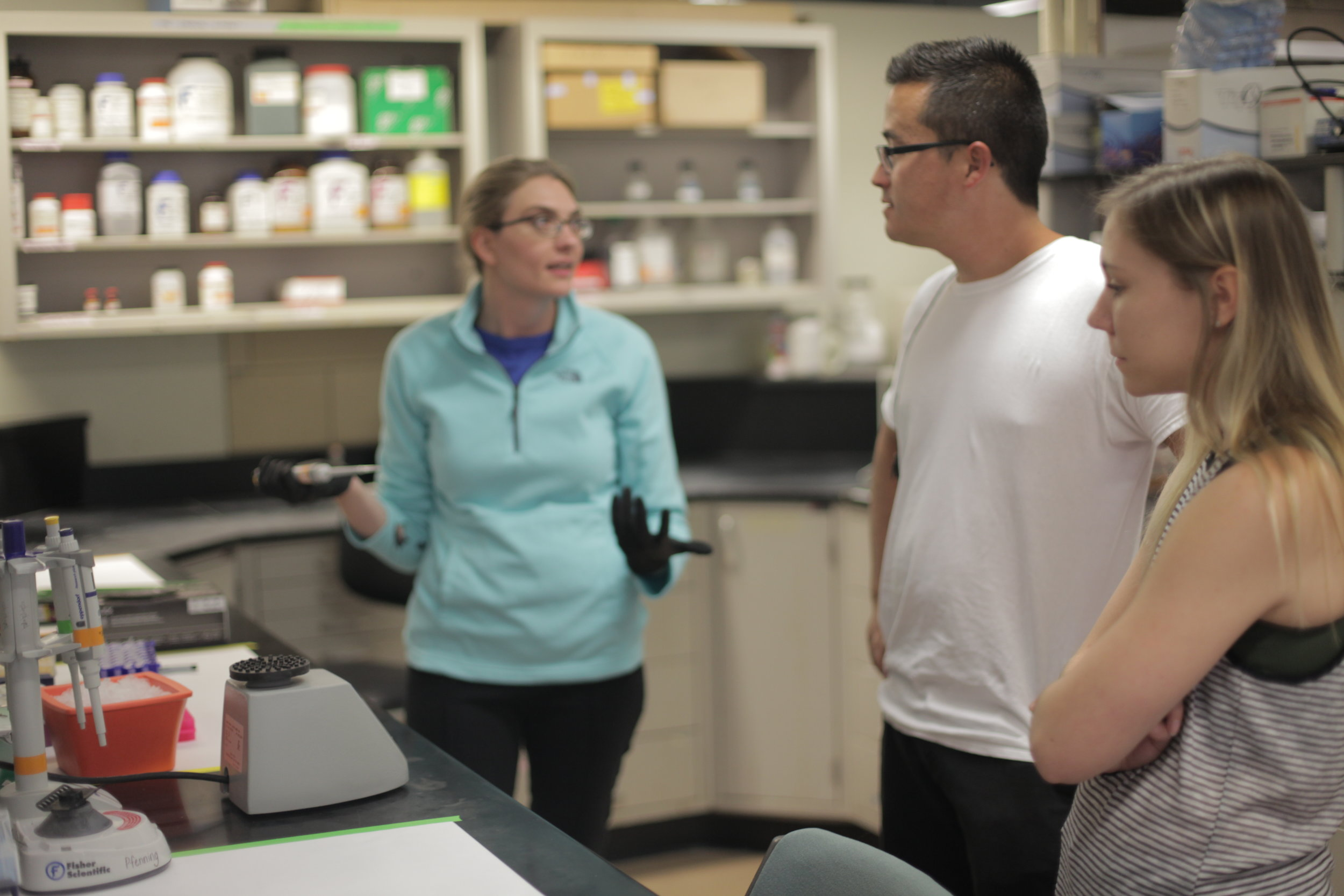Guest post by ANYA science advisor, Dr. Ruth McCole, 10/5/18.
Whenever I see scientific research depicted onscreen, it always drives me bananas with its inaccuracies. I’m a researcher in molecular biology and genetics, and while I was working at Harvard I got the opportunity to advise on the movie ANYA. I was thrilled to contribute to showing science and scientists on screen the way they really are.
Ruth McCole (right) and Ting Wu tweak ANYA’s dialogue to bring it closer to the way research geneticists talk to each other in the lab. (At Harvard Medical School with Carylanna Taylor (Writer/Producer). Photo by Jacob Okada.
Advising on ANYA began when my mentor, Ting Wu, and I discussed with the filmmakers Carylanna Taylor and Jacob Okada what kind of genetic phenomena could fit well into the human storyline they wanted to explore. We then read and commented on the screenplay for a number of versions, pointing out things that weren’t quite as ‘true to life’ scientifically as the could be. I even helped to write a scene between two scientists: the one where Seymour and Rosalind stand at the whiteboard discussing their sequencing experiment. When casting for the movie was completed, Motell Foster - one of the stars who would play the main scientist in the movie – visited our lab to learn more about the science his character Seymour is expert on and even tried out pipetting and using centrifuges!
Ruth watches actors Motell Foster and Barbara Rosenblat perform a scene she wrote. (At Carnegie Mellon University with Nick Carignan (sound) and Jacob Okada (Writer/Director/DP). Photo by Carylanna Taylor.
Finally, I spent two days at Carnegie Mellon University in Pittsburgh at the lab of Andreas Pfenning, working with PhD student Alyssa Lawler, preparing and ‘choreographing’ all the laboratory scenes. We worked really hard to ensure that everything the scientists do in the movie is accurate, down to having the right lab equipment on display for each experimental scene. That made continuity quite a challenge because many scenes need to be filmed a number of times and we needed to reset the scientist’s workstations for every take. Alyssa and I were always standing off camera with racks of spare tubes and jumping in to reset the equipment between takes.
Ruth explains a change in choreography to 1st AD Richard Lee Dalton and CMU’s Alyssa Lawler. Photo by Jacob Okada.
I’ve always loved stories and ANYA combines a touching human tale with modern science, not just exploring the technical aspects of genetics but the ethical side as well. It’s really important for everyone in society to understand the ethical and moral questions raised by the newest genetic tools we have, as well as to see scientists as the normal, flawed people we are! ANYA addresses all this beautifully, and I’m very proud to have contributed.
Follow Ruth on Twitter @RuthDoesScience.



